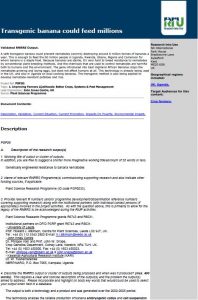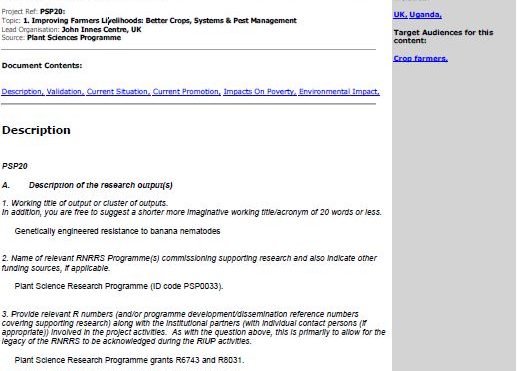A safe transgenic banana could prevent nematodes (worms) destroying around 6 million tonnes of bananas a year. This is enough to feed the 60 million people in Uganda, Rwanda, Ghana, Nigeria and Cameroon for whom banana is a staple food. Because bananas are sterile, it’s very hard to breed resistance to nematodes by conventional plant breeding methods. And the chemicals that are used to control nematodes are harmful both to humans and the environment. The gene introduced into East Highland African Bananas stops the nematodes growing and laying eggs, but does not affect humans at all. This technology is already being used in the UK, and also in Uganda on local cooking bananas. The transgenic method is also being applied to develop nematode-resistant potatoes and rice.
Region: Uganda, UK
Date published:
2007
Published by:
Research Into Use
Type of resource:
Research output overview
Resource topic:
Banana
Project/Programme: Not specific
Pest/Disease: Nematodes
Pages:
8
File type:
PDF (685 KB)



